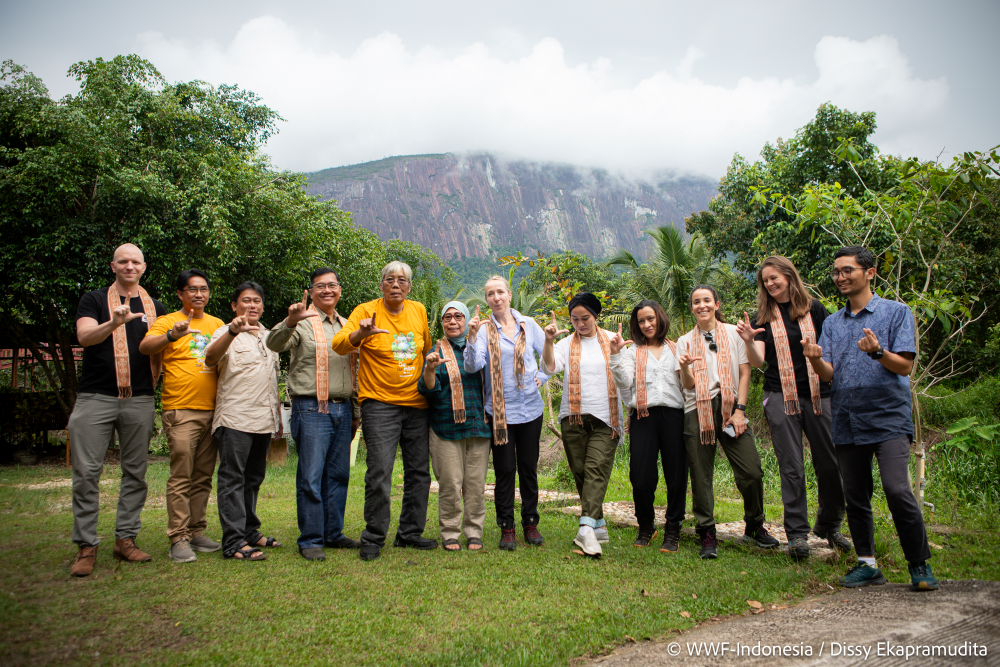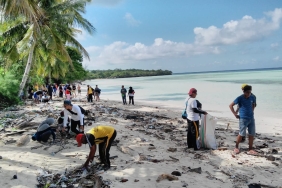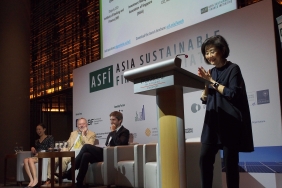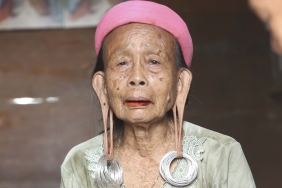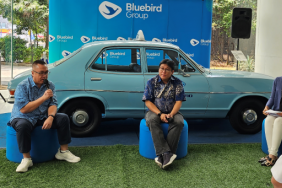DEVELOPING A GREEN ECONOMY BASED ON WEST KALIMANTAN LONG-TERM DEVELOPMENT PLANNING AS PART OF SDGs
The Sintang Regency, West Kalimantan plays a crucial role in environmental development as approximately 60% of the land area supports natural forest ecosystems. Thus, as a part of the collaboration WWF-Indonesia and HSBC Global visited Sintang Regency to assess their efforts and potential outcomes for the next phase of development in the region.
The visit entails the Asian Sustainable Palm Oil Links (ASPOL) program outcome and successes that can be adapted for the government and the locals which includes protecting the High Conservation Value (HCV) and High Carbon Stock (HCS) regions as well as developing a green economy based on West Kalimantan’s Long-Term Development Planning as a part of the SDGs.
Those are achieved from WWF’s guidance towards the success of the sustainable palm oil operation practices by Koperasi Unit Desa (KUD) Harapan Jaya, WWF’s traceability Hamurni application, and the multi-stakeholder role in conserving the ecosystem of Lake Jentawang. In addition, the role of WWF and funding from HSBC as well as support from the Regent’s Policies has enabled the success of those efforts to run smoothly.
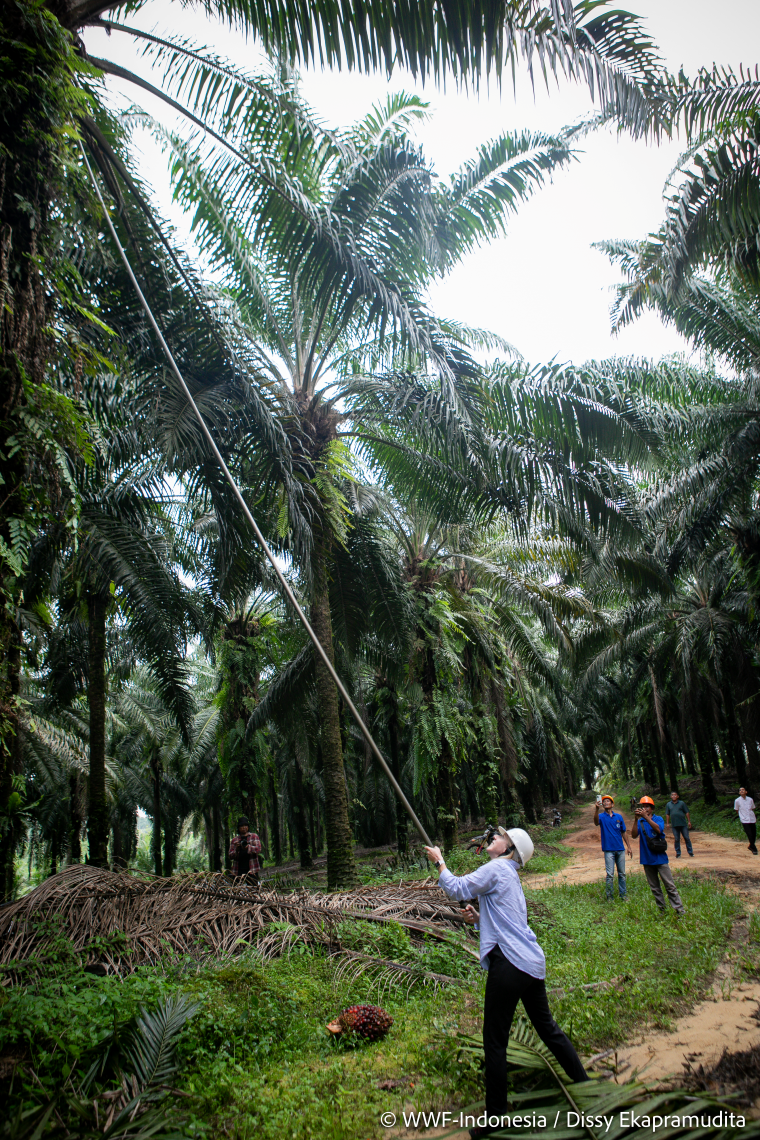
Efforts To Achieve
The guidance provided by WWF Indonesia towards two independent smallholders cooperatives, KUD Harapan Jaya and Rimba Harapan, has supported the sustainable practices implemented in their operation. Amongst the two cooperatives, up to 357 smallholders with areas greater than 866.6 Ha of palm oil plantation have been Roundtable on Sustainable Palm Oil (RSPO) certified. This led WWF Indonesia and HSBC Indonesia to provide an appreciation certificate on the 12th of June 2024.
In order to create better traceability, Hamurni mobile application was introduced in the KUD Harapan Jaya back in June 2024. Hamurni aims to encourage smallholders to meet with the global request for palm oil products that were not initially from the No Peat and No Exploitation' commitment (NDPE) area, which also ensures a responsible supply chain. It is proven from the involvement of the 16 sub-group lead smallholders and 1 cooperatives organiser in the testing stage, which they also exhibited high enthusiasm with this application. Thus, it would enhance the local socio-economic development.
In the Sintang Regency, approximately 80% of the lake is located at the Ketungau Watershed (DAS), where Lake Jentawang becomes a community management model. With this, Lake Jentawang with an area of 1,611.6 Ha (20.6 Ha protected zone, 992.7 Ha utilisation zone, and 598.3 Ha buffer zone) around the Community Conservation Management Areas (AKKM) was initially intended to be converted to a palm oil plantation. Therefore, WWF and other actors has collaborated with government and local communities in sustainable land management. It is also further strengthened by the intervention of the Sintang Regency Government's implementation of the 2018 Regent Policy number 88. The Regent of Sintang issued a decree related to the zoning of Lake Jentawang mandating that Makmur Agro Lestari (MAL) corporate, the company operating near Jentawang Lake, to support the AKKM through their cooperative social responsibility programs. Furthermore, the community is grateful because there has been intensive assistance since 2018 from the government and various organisations, including WWF Indonesia.
Benefits - Community Development
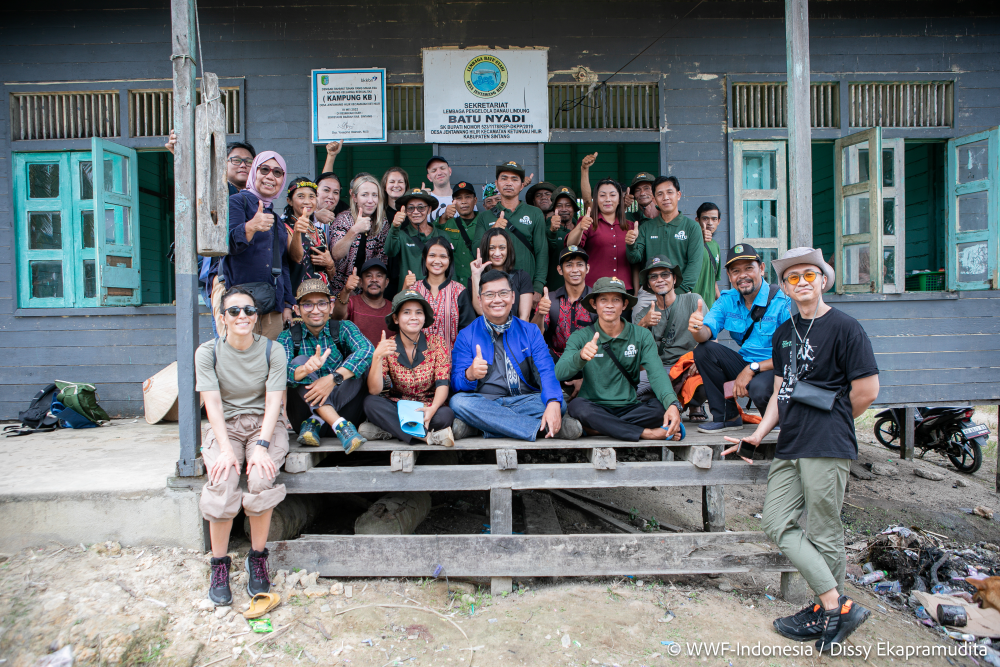
From the guidance provided by the WWF towards the two cooperatives, it encouraged them to be stronger institutionalised, increasing knowledge in regard to sustainable agriculture management and other economic benefits. It is proven from the presence of 5 other KUD in Sintang that requested for the guidance to become an RSPO certified cooperative, particularly from WWF such as in Rimba Harapan and Harapan Jaya. Therefore, from the RSPO certification they are committing to advancing the SDGs.
The Hamurni traceability app developed by WWF has given great advantages to smallholders as they are able to be a responsible supply chain, it allows smallholders to be more effective and efficient in their jobs which ensures the transparency in its operations. Consequently, the application is seen to benefit both the cooperative and Smallholders party, where the smallholders are able access a digital logger, while data production can be accessed in real time for the cooperatives. Thus, enabling smallholder users to comply with The Regulation on Deforestation Free Products (EUDR) and other global market regulations, allowing the locals to develop their sustainable practices with ease and higher accuracy.
The conservation of the Community Conservation Management Areas (AKKM) of Lake Jentawang initiative goes beyond protecting the ecosystem. Since it also creates additional value for the local products and enhancement of the local community welfare. As water conservation and the economy of the community are at risk from the absence of water in reservoirs. Therefore, it improves the environmental quality, as well as economic income, which will be marked by the fish harvest in June 2023.
Moving Forward
With the KUD Harapan Jaya and Rimba Harapan being RSPO certified, it shows that the regency supports the goal of improvement of sustainable agriculture management, business legality enforcement, and independent smallholder welfare. Besides, there are significant economic benefits of being RSPO certified from being recognized in the global market. This not only enhances the local’s wealth, but also reduces the impact of climate change and preserving biodiversity. Hence, it will then help create a brighter future for generations to come.
Moreover, the Hamurni application enables smallholder users to comply with EUDR regulations and other global market regulations. Consequently, it enables them to ensure transparency from the plantation to mill, then to refinery, and eventually to the hands of consumers. Hence, they are able to be a pilot project to encourage the development of the national dashboard, prepared by the Indonesian government to be conveyed to the EU.
In regard to Lake Jentawang, the community hopes that there will be additional guidance regarding socio-economic development. This includes increasing the capacity of women to be more independent through assistance in fish processing businesses, education, agriculture, as well as arts and crafts which lead to the increasement of cultural values and potential additional income for the people of Lake Jentawang. Finally, the Village Government also hopes for assistance in village governance towards a tourism village, or sustainable village.

